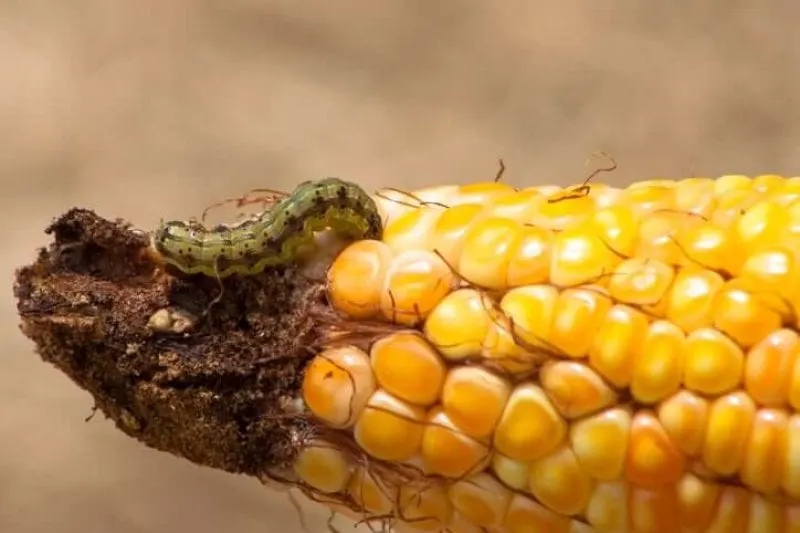‘Gene hacking’ fall armyworm moths: Biotech company Oxitec behind Florida Keys gene drive mosquitoes approved for pest-release test run in Brazil
‘Gene hacking’ fall armyworm moths: Biotech company Oxitec behind Florida Keys gene drive mosquitoes approved for pest-release test run in Brazil


Oxitec, the British biotech firm behind the genetically engineered mosquitoes that just took flight in the Florida Keys [recently], is now moving on to its next gene-hacked pest.
The company is partnering with pharmaceutical corporation Bayer on a genetically engineered version of the fall armyworm, a notorious crop-eating pest that’s ravaged farms in the US, China, India, Brazil, and multiple African nations in recent years, the news wire Zenger News reports.
Just like Oxitec’s mosquitoes, the idea is to release gene-hacked armyworms into the wild that can’t produce female offspring, ultimately driving down the pest population without spraying harmful chemicals.
Brazil’s regulatory agency CTNBio gave Oxitec and Bayer the approval they needed to launch a field test of the gene-hacked armyworm — technically a caterpillar — on commercial crops, so there may be genetically altered bugs crawling across corn farms in the area soon.
“Our technology potentially reduces the need for additional pesticides in the long term,” Oxitec head of agricultural programs Neil Morrison said, according to Zenger. “Besides reducing populations of the pest, it also has the potential to slow the resistance development to insecticides and biotechnology enhanced crops.”
Read the original post

 | Videos | More... |

Video: Nuclear energy will destroy us? Global warming is an existential threat? Chemicals are massacring bees? Donate to the Green Industrial Complex!
 | Bees & Pollinators | More... |

GLP podcast: Science journalism is a mess. Here’s how to fix it

Mosquito massacre: Can we safely tackle malaria with a CRISPR gene drive?

Are we facing an ‘Insect Apocalypse’ caused by ‘intensive, industrial’ farming and agricultural chemicals? The media say yes; Science says ‘no’
 | Infographics | More... |

Infographic: Global regulatory and health research agencies on whether glyphosate causes cancer
 | GMO FAQs | More... |

Why is there controversy over GMO foods but not GMO drugs?

How are GMOs labeled around the world?

How does genetic engineering differ from conventional breeding?
 | GLP Profiles | More... |

Alex Jones: Right-wing conspiracy theorist stokes fear of GMOs, pesticides to sell ‘health supplements’




 Trust issues: What happens when therapists use ChatGPT?
Trust issues: What happens when therapists use ChatGPT? Fighting deforestation with CO2: Biotechnology breakthrough creates sustainable palm oil alternative for cosmetics
Fighting deforestation with CO2: Biotechnology breakthrough creates sustainable palm oil alternative for cosmetics Viewpoint — Fact checking MAHA mythmakers: How wellness influencers and RFK, Jr. undermine American science and health
Viewpoint — Fact checking MAHA mythmakers: How wellness influencers and RFK, Jr. undermine American science and health Viewpoint: Video — Big Solar is gobbling up productive agricultural land and hurting farmers yet providing little energy or sustainabilty gains
Viewpoint: Video — Big Solar is gobbling up productive agricultural land and hurting farmers yet providing little energy or sustainabilty gains California, Washington, Oregon forge immunization alliance to safeguard vaccine access against federal undermining
California, Washington, Oregon forge immunization alliance to safeguard vaccine access against federal undermining 30-year-old tomato line shows genetic resistance to devastating virus
30-year-old tomato line shows genetic resistance to devastating virus The free-range chicken dilemma: Better for birds, but with substantial costs
The free-range chicken dilemma: Better for birds, but with substantial costs ‘You have to treat the brain first’: Rethinking chronic pain with Sanjay Gupta
‘You have to treat the brain first’: Rethinking chronic pain with Sanjay Gupta
